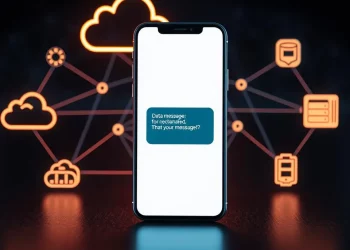In today’s era of mobile phones and wireless communication, landline numbers might appear outdated. However, understanding the concept and advantages of landline numbers remains essential. This comprehensive blog post will explore the definition of landline numbers, their capabilities, why someone might consider having one, how to obtain a landline number, and more. Join us as we uncover the fundamentals of landline numbers and their relevance in a mobile-dominated world.
Defining Landline Numbers
Landline numbers refer to telephone lines that rely on physical cables for communication. Unlike mobile phones that operate wirelessly, landline phones transmit voice signals through physical wires and a fixed network infrastructure. Each landline number corresponds to a specific location, such as a residence or office, and is typically provided by telecommunications companies. Although landline numbers may seem traditional, they have been a cornerstone of communication for many decades.
Capabilities of Landline Numbers
When considering their utility, understanding what landline numbers can and cannot do is crucial. Here are some key features of landline numbers:
a) Voice Calls
Landline numbers excel in providing reliable and high-quality voice calls. Landlines often offer superior sound clarity and reception than mobile phones, ensuring clear communication.
b) Reliability
Landline connections are generally more stable and dependable than mobile networks. They are not affected by signal strength or coverage fluctuations, ensuring uninterrupted conversations.
c) Power Independence
Landline phones can function during power outages when connected to backup power sources like uninterruptible power supplies (UPS) or generators. This feature guarantees communication during emergencies or blackouts.
d) Limited Mobility
Unlike mobile phones, landline numbers are stationary and tied to a specific location. They lack the portability and mobility of mobile devices, limiting their use to a fixed address.
Reasons to Consider Having a Landline Number
Although mobile phones dominate the communication landscape, there are several compelling reasons to consider having a landline number:
a) Reliability
Landline numbers are known for their reliability, ensuring consistent connectivity without worrying about signal strength or dropped calls.
b) Sound Quality
Landline calls often provide superior audio clarity compared to mobile phone calls, offering better communication experiences, especially for essential or professional conversations.
c) Security and Privacy
Landline numbers are less susceptible to hacking or unauthorized access, providing a more secure communication channel. Additionally, landlines are not linked to personal information in the same way that mobile phone numbers often are, offering increased privacy.
d) Emergency Preparedness
Landline numbers can be a lifeline during emergencies as they remain functional even when mobile networks are overloaded or unavailable. This feature ensures reliable communication during critical situations.
e) Cost-Effectiveness
Landline services are often more affordable for local calls, making them a cost-effective option for those who primarily communicate within a specific area.
How to Obtain a Landline Number
To acquire a landline number, follow these general steps:
a) Research Telecommunications Providers
Begin by researching local or national telecommunications companies that offer landline services in your area. Consider factors such as coverage, reputation, and pricing.
b) Contact Providers and Compare Plans
Contact the selected providers to inquire about their landline services and available plans. Compare the features, call rates, additional services, and customer support to choose the most suitable option.
c) Set Up the Connection
Once you have selected a provider and plan, schedule an appointment to install the landline connection at your desired location. The provider will send a technician to install and configure the equipment and wiring.
d) Obtain the Landline Phone
To utilize the landline number, you will need a compatible landline phone. Purchase a landline phone from a reputable retailer or use an existing one compatible with the provider’s network.
e) Activate and Start Using
After the installation and setup, your landline number will be ready for use. Connect your landline phone to the provided jack, follow any activation instructions from the provider, and start making and receiving calls.
Landline or Mobile? Choosing the Right Communication Option
Consider your specific needs and preferences when deciding between a landline number and a mobile phone. While mobile phones offer mobility and advanced features, landline numbers have advantages, such as reliability, sound quality, security, and cost-effectiveness. It may be beneficial to have both options: a landline number for stability and a mobile phone for on-the-go communication. Assess your communication requirements, budget, and location to determine the best combination.
Conclusion
Landline numbers retain their importance and offer unique advantages despite the proliferation of mobile phones. Understanding the basic definition, capabilities, reasons for having one, and the process of obtaining a landline number can help individuals make informed decisions regarding their communication needs. While mobile phones provide mobility and advanced features, landline numbers excel in reliability, sound quality, security, and cost-effectiveness. By considering these factors, individuals can determine whether having a landline number is a valuable addition to their communication options in today’s ever-connected world.














